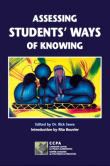Standardized Testing
Leave a comment News
News
Standardized Testing (Almost) Comes to Saskatchewan
by Marc Spooner and Paul Orlowski, Our Schools / Our Selves
Saskatchewan educators question standardized testing
A group of educators and education professors sent a letter to education minister Russ Marchuk questioning the value of introducing standardized tests in Saskatchewan.
Ontario teachers call for testing moratorium
Ontario’s public elementary school teachers have called for a two-year moratorium on standardized tests in Grade 3 and Grade 6, saying the annual exams are expensive, detract from other subjects and give parents the wrong idea about what makes a good school.
Resources
Publishing Provincial Standards Test Results Who Really Benefits?
A fact sheet from the Canadian Centre for Policy Alternatives – Manitoba
“We don’t need test results to tell us which schools need more help. We need only ask school trustees, superintendents, principals, teachers and parents. Identifying schools and needs is the easy part; getting the resources to do what is required is the hard part.”
The Death and Life of the Great American School System: How Testing and Choice Are Undermining Education
Diane Ravitch—former U.S. assistant secretary of education—examines her career in education reform and repudiates positions that she once staunchly advocated. Drawing on over forty years of research and experience, Ravitch critiques today’s most popular ideas for restructuring schools, including the ‘accountability’ measures driven by standardized testing, and the rise of privatized charter schools.
The Road to Flobbertown
Remember when grade school was all about crafts and field trips? In this thought-provoking Briarpatch Magazine article, teacher Sue Stock and her daughter Shayna find that “in a culture that places greater and greater emphasis on testing and accountability, activities that inspire creativity, innovation and imagination are the first to be cut out of the lesson plans when teachers need to make room for more standardized tests and the preparation that accompanies them.”
Hooray for Diffendoofer Day!
“All schools for miles and miles around
Must take a special test,
To see who’s learning such and such
To see which school’s the best.
If our small school does not do well,
Then it will be torn down,
And you will have to go to school
In dreary Flobbertown.”
A fun look at a school that decides to go against the grain, by Dr. Seuss and Jack Prelutsky
Freedom to Learn Requires Freedom to Teach
“It seems that every professional development day brings forth a guest speaker who is an expert in the field of classroom management, assessment, or evaluation. They have never personally implemented their initiatives in a classroom; however, we as classroom teachers are expected to put into practice a new classroom management style, a new assessment strategy, or a new reporting spreadsheet. And in my experience these initiatives hardly ever bring forth the desired or intended results.” A thoughtful view from inside the classroom by educator Nick Forte.
ALTERNATIVES
Assessing Students’ Ways of Knowing
This Canadian book gives the reader some understanding of the complexities of standardized testing and performance assessment in education – particularly for aboriginal students. The book and its contributors invite readers to consider carefully, assessment for accountability, particularly the use of standardized tests, and the value of assessment for student learning. Many alternatives to standardized testing are provided.
Redefining How Success is Measured in First Nations, Métis and Inuit Learning
After an extensive nation-wide consultation, the Candian Council of Learning reports that although current learning indicators now widely used by governments and researchers are important measures, they fall short. The Council states they must be broadened to measure more than simply years of schooling and performance on standardized tests. A more holistic approach to measurement that recognizes all aspects of lifelong learning is needed to measure the individual and collective well-being of First Nations, Métis and Inuit communities.

